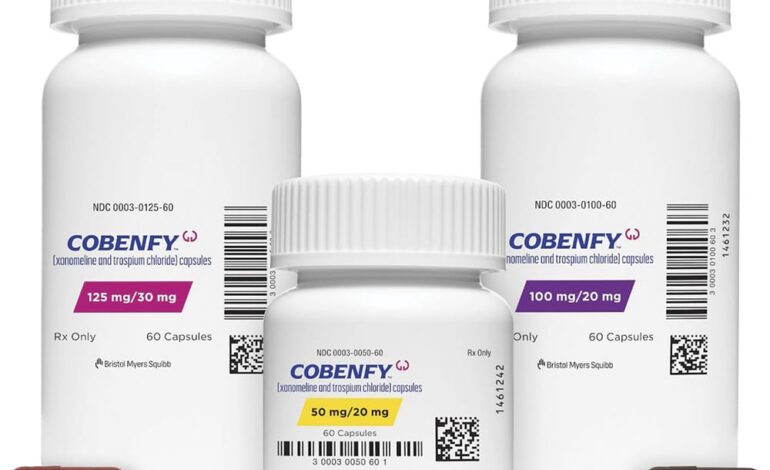Schizophrenia is a life-altering mental health condition that affects approximately 24 million people worldwide, including over 1.5 million in the United States. Despite decades of medical advancement, schizophrenia remains one of the most misunderstood and stigmatized disorders in psychiatry. Now, a new drug called Cobenfy is offering what may be the most promising treatment development in years — one that could reshape how individuals and families manage life with schizophrenia. As interest grows in the Cobenfy schizophrenia treatment approach, many experts believe it could mark a turning point in how the condition is managed.
How Does Cobenfy Work and Why Does It Matter Now More Than Ever?
Schizophrenia is more than just a medical diagnosis — it’s a condition that infiltrates every aspect of a person’s life. From maintaining employment to forming relationships, or even completing daily tasks, the toll can be immense. The symptoms, which often begin in early adulthood, include hallucinations, delusions, disorganized thinking, lack of motivation, and emotional withdrawal. Many individuals experience isolation, homelessness, or unemployment. Families, too, face emotional burnout and financial hardship, often acting as full-time caregivers. For many, the growing interest in the Cobenfy schizophrenia treatment offers a renewed sense of possibility amid years of uncertainty and struggle.
As someone who has watched a close family member navigate life with schizophrenia, I’ve seen firsthand how difficult the journey can be. The revolving door of psychiatric hospitals, the trial-and-error of medications that either don’t work or cause unbearable side effects, and the sheer exhaustion of trying to find stability — it’s overwhelming. There were days when managing a conversation was impossible, and others when hope felt completely out of reach.
Who Is Cobenfy Designed For?
Unlike earlier antipsychotics, Cobenfy is designed to more precisely modulate the dopamine and glutamate systems, both of which are believed to play key roles in the onset and progression of schizophrenia. Where traditional medications either over-sedate or fail to control key symptoms, Cobenfy aims to provide balanced, targeted relief without robbing patients of their personality, creativity, or energy.
In early trials, Cobenfy has shown significant improvement in managing positive symptoms (like hallucinations and delusions), while also improving cognitive clarity and emotional engagement. Patients have reported feeling more in control, more alert, and more connected to others — a vital breakthrough when so much of schizophrenia treatment has focused solely on symptom suppression.
Who is it for?
Cobenfy is targeted at adults with moderate to severe schizophrenia, particularly those who haven’t responded well to older antipsychotics or who experience harsh side effects. It may also provide a new option for early intervention, which is key to long-term outcomes.
Why Is Schizophrenia So Costly — and How Could Cobenfy Help Reduce the Burden?
The financial burden of schizophrenia is staggering. In the U.S. alone, the annual cost of schizophrenia-related care exceeds $155 billion, factoring in hospitalizations, outpatient care, lost productivity, housing instability, and caregiver burnout. Many individuals cannot work, and families often reduce work hours or quit jobs to provide full-time support.
But the human cost is even greater.
Living with schizophrenia often means losing years of potential: education, careers, relationships, and dreams deferred. Many individuals battle homelessness or incarceration — not due to criminal intent, but because they were left untreated or under-supported. The stigma also makes it harder to ask for help, find community, or access stable employment.
Read About: The System Didn’t Make Room for Her—So Shamekka Marty Built a Platform Instead
Cobenfy has the potential to change this trajectory. Understanding how Cobenfy works is essential, as its targeted approach could dramatically reduce the long-term consequences of untreated or poorly managed schizophrenia. By reducing relapses, improving emotional functioning, and making treatment more tolerable, it could keep more people out of emergency rooms and long-term psychiatric care. It could allow individuals to return to work, rebuild relationships, and live more independently.
Even public figures have brought awareness to the condition — John Nash, the Nobel-winning mathematician portrayed in A Beautiful Mind, is perhaps the most famous example. Others, like R&B artist Michel’le, have shared their stories of trauma and recovery, shedding light on the everyday reality of mental illness.
Access and Affordability
As with any new drug, cost and access will be critical. Cobenfy is not yet widely available and may be expensive without insurance. However, mental health advocates are pushing for broader coverage, recognizing that investing in early, effective treatment ultimately reduces long-term costs to both the healthcare system and society.
Some pharmaceutical assistance programs may offer Cobenfy at a reduced rate, and telehealth-based psychiatric services could help extend its reach into underserved communities.
What Are the Final Takeaways on Cobenfy and the Future of Schizophrenia Treatment?
At Ravoke, we’re committed to covering not just the science, but the human stories behind mental health. Cobenfy isn’t a cure, but it might be the most meaningful step forward in schizophrenia treatment in years. For those of us who’ve seen loved ones suffer through the cycles of psychosis, isolation, and ineffective care, this drug represents more than a new pill — it’s a new possibility.
Stay connected with us for more updates on mental health breakthroughs, and if you or someone you love is struggling, know that help is possible — and hope is real.
Recent Posts
- The GLP-1 Era: Pills, Personalization, and the Gut-Brain Frontier
- The Plus-Size Conversation We Still Aren’t Having
- The Silent Revolution: How Nutrition Is Filling the Gap in Global Mental Health Care
- Vaseline: What We Grew Up Using—and What We Should Know Now
- The Smart Way to Store Garlic, Onions, and Shallots









